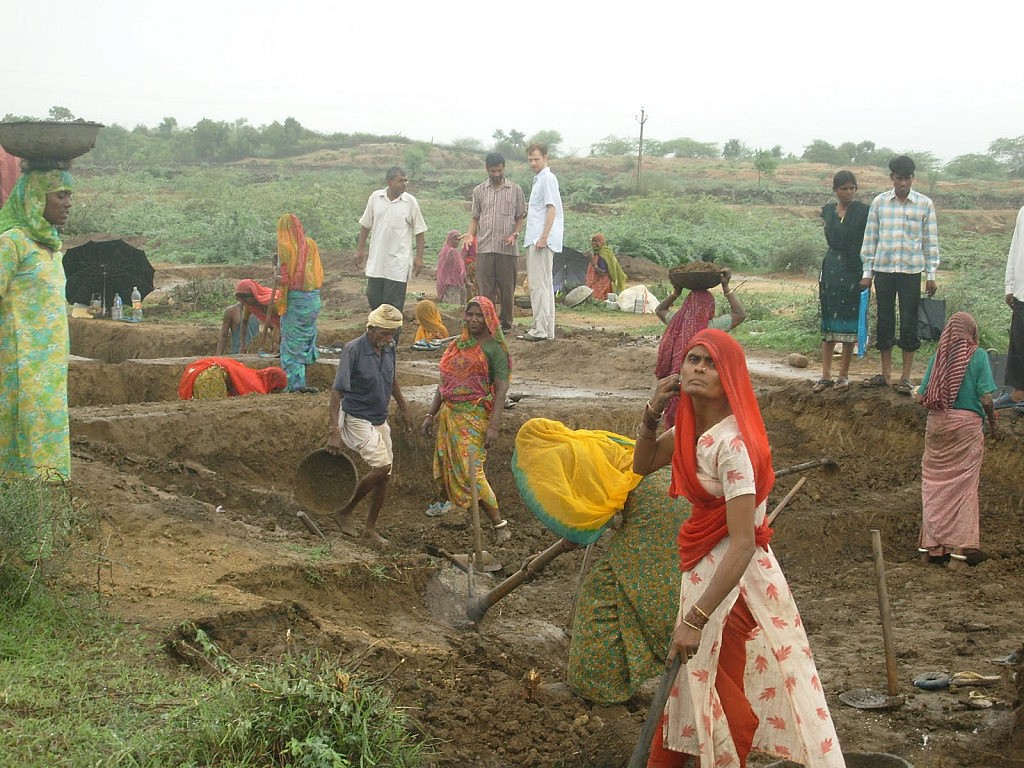After appropriating Sardar Patel and Ambedkar, the Narendra Modi government is ready for encore. This time, the target is a major feature of the Congress-led United Progressive Alliance—the National Rural Employment Guarantee Scheme (NREGS) which emanated from the Mahatma Gandhi National Rural Employment Guarantee Act (MGNREGA), 2006. The move is symptomatic of the intellectual bankruptcy of the ruling dispensation on many counts, not least of them pertaining to efficacy.
For, despite all the song and dance orchestrated by the government to embrace Ambedkar, the Rohith episode has underlined that the saffron party is not the favorite of Dalits. Thought leaders from the community—the folks who almost worship Ambedkar—are viscerally opposed to the Sangh Parivar. The Ambedkar appropriation business shows the limits, if not the inefficacy, of the politics of tokenism, symbolism, and baloney—the kind of politics Modi & Co. has an obsession with.
As for to the UPA’s most famous entitlement scheme, its espousal by the Modi government exhibits ideological confusion and political promiscuity. The Rural Development Ministry has called MGNREGA a “national pride.” However, in the 2015 Budget session, the Prime Minister had termed it a “living monument of Congress’ failures” which he nevertheless promised to continue as a reminder the grand old party’s misrule to people (A curious stand: the country’s top leader confessing to persist with a bad policy to score political points). In a year, the monumental failure has become national pride.
This throws up the most important question: what does the Modi government believe in? One fails to comprehend its political philosophy, if it has any.
Does it still stand for its not-very-old slogan minimum government-maximum governance? As chief minister of Gujarat, Modi once said—almost like a Thatcher or a Reagan—that the government of business is not business. He wound up the Planning Commission, a symbol of Nehruvian socialism, but it was facetious symbolism; there was nothing substantive in it.
This is the reason that now his government is lauding the blatantly socialist measure, the NREGS, the scheme that guarantees the rural poor 100 days of work at the taxpayer’s expense. The programme creates conditions for permanent serfdom, with the Indian state as the feudal lord and millions as dependants. Besides, it opens up windows of opportunities for the venal; there already have been reports of corruption.
Perhaps the government sees the appropriation of NREGS as an expeditious and politically rewarding step. After all, the UPA’s impressive performance in the 2009 polls was partially attributed to this scheme. This interpretation was widely accepted by the Left-leaning intellectual class. The truth, however, lay somewhere else. According to a study by the then chairman of Commission for Agriculture Costs and Prices, Ashok Gulati, real farm wages rose by almost 6.8 per cent per annum from 2006-07 onwards. Apparently, the UPA was beneficiary of the agricultural growth in the 2009 elections rather than any salutary effect of the MNREGA.
Having failed to do anything big to reduce rural distress—such measures as APMC reforms are nowhere on the radar—the Modi regime is reverting to old Congress policies and programmes like the NREGS. The endeavor will help neither the farmer nor the government.
